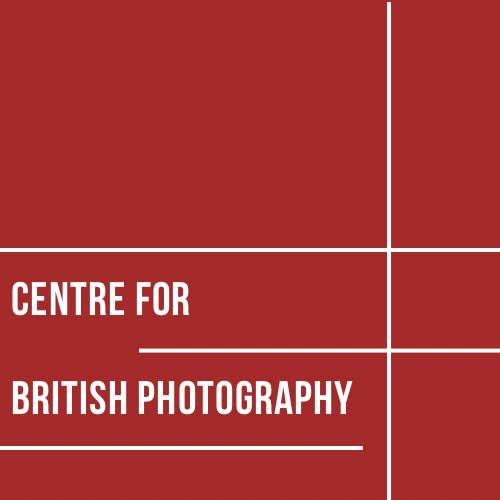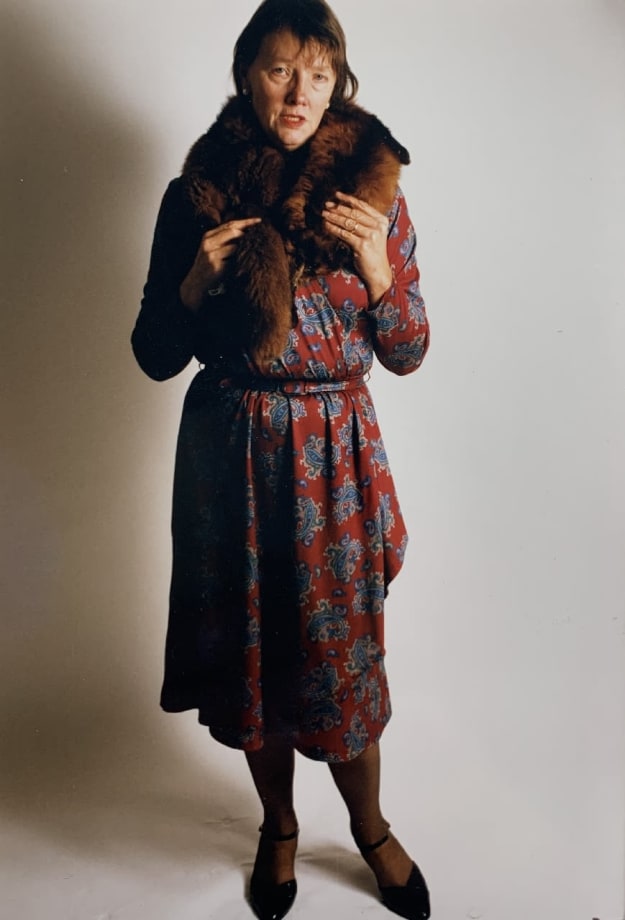Jo Spence (1934 - 1992) has been an integral figure within photographic discourse from the 1970s onwards.
Throughout her diverse projects she is well known for her highly politicised approach to photography and the representation of her own struggles with cancer. She started her career assisting commercial photographers before quickly establishing her own agency specialising in weddings, family portraiture and actor portfolios. Her early experiences led her to an acute understanding of the mechanics of photography from the practical to more theoretical considerations. The early Seventies saw Spence's work shift from commercial activity towards a more interrogative and critical documentary mode; it was a moment of broader economic uncertainty that was to be expressed in her work and more generally in the work of that period. Although Spence's work would later critique orthodox documentary procedures, her early work articulated a desire to create photographs that run counter to the idealised imagery offered by advertising.
Spence's burgeoning political awareness would lead her towards a chance meeting in 1974, between herself and Terry Dennett, a photographer who would eventually become a lifelong collaborator. Together they founded the Photography Workshop Ltd, a roving platform that acted as an open resource, with a common belief in the emancipatory potential of photography. Spence continued to work collaboratively throughout her career going on to co-establish the Hackney Flashers (1974 - early 80's)* and Polysnappers (1980 - 82). The latter was embarked upon while she was a mature student at the Polytechnic of Central London.
Alongside a prolific photographic practice, Spence maintained a career as an educator, writer, organizer and broadcaster. She was firmly embedded in the photographic discourse of the era, regularly appearing in journals such as Ten.8, Cameraworks and the feminist magazine Spare Rib. In 1986, Spence published Putting Myself in the Picture (Camden Press) bringing together her raw and confessional works to inspire a younger generation of photographers. She participated in many key photographic surveys, including the seminal Three Perspectives on Photography at the Hayward Gallery in 1979. Spence often sought alternative distribution models, laminating work for durability and renting out her photography to conferences, libraries, universities and public spaces to broaden its audience.
Spence referred to herself as an educational photographer in homage to Bertolt Brecht; her direct, often confrontational style was intended to be both pedagogic and emotive. For Spence, photography should be informative, and it should be noted that her emergence as a photographer paralleled an increasingly politicised art world. Figures such as Allan Sekula and Victor Burgin (who would later go on to teach Spence) were informed by critical theory and made photographic work that questioned representation and documentary forms.
In 1979 Spence made Beyond The Family Album for inclusion in 'Three Perspectives...', bringing together many of her major concerns. It addressed the underrepresented aspects of family life, including divorce, illness and strained relationships (particularly mother and daughter). In these works Spence sought strategies of self representation that apposed the prevailing orthodoxies and normalised codes of behaviour that were expected of her.
Remodelling Photohistory (1980-82), made in collaboration with Terry Dennett, reworked genre photography with lessons learnt from Augusto Boal. Spence attempted ways of working that made the image 'strange' through conflating disparate and opposing iconography including landscape, portraiture and ethnographic traditions. This was also the first time that Spence questioned the assumption of naturalism within photography through role-play and performance.
Not long after, Spence was diagnosed with breast cancer. Much of her subsequent work was a response to her treatment by the medical establishment and her attempt to navigate its authority through alternative therapies. Work such as Cancer Shock (1982) and The Picture of Health? (1982-86) present Spence's concerns through photo narrative, montage and performative re-staging of personal trauma.
In 1984, alongside Rosy Martin, Spence developed 'Photo-Therapy', adopting techniques from co-counselling. The considerable achievement of Photo-Therapy was to invert the traditional relationship between the photographer and the subject. If historically the subject had little control over their own representation, Photo-Therapy shifts this dynamic. The subject was able to act out personal narratives and claim agency for their own biography.
In 1990, after returning from work commitments abroad, Spence was diagnosed with leukemia, an illness that would claim her life in 1992. The Final Project was intended as her retirement work and is formed by her response to the illness. Death-like iconography pervades the photographs, from Mexican Day of the Dead imagery to double exposures created from previous works (when Spence was too ill to travel). Up until her final moments Spence was still probing at the potential of photography to articulate the 'unrepresentable'.
Her practice illustrates a commitment to the political potential of photography - a way to connect her own intimacies and traumas to a broader public discourse. The American writer Saul Bellow once stated that he wrote so that he wasn't ignored; this dictum can easily be applied to the work of Jo Spence. Affirmation, for Spence was about visibility and autonomy - to say what you want to, when you want to.
George Vasey, Jo Spence, Official Website.
*(Hackney Flashers: An Dekker, Helen Grace, Sally Greenhill, Liz Heron, Gerda Jager, Maggie Millman, Michael Ann Mullen, Maggie Murray, Jimi Rawlings, Ruth Barrenbaum, Christine Roche, Annette Soloman, Arlene Strasberg, Sue Treweek, Julia Vellacott.)

